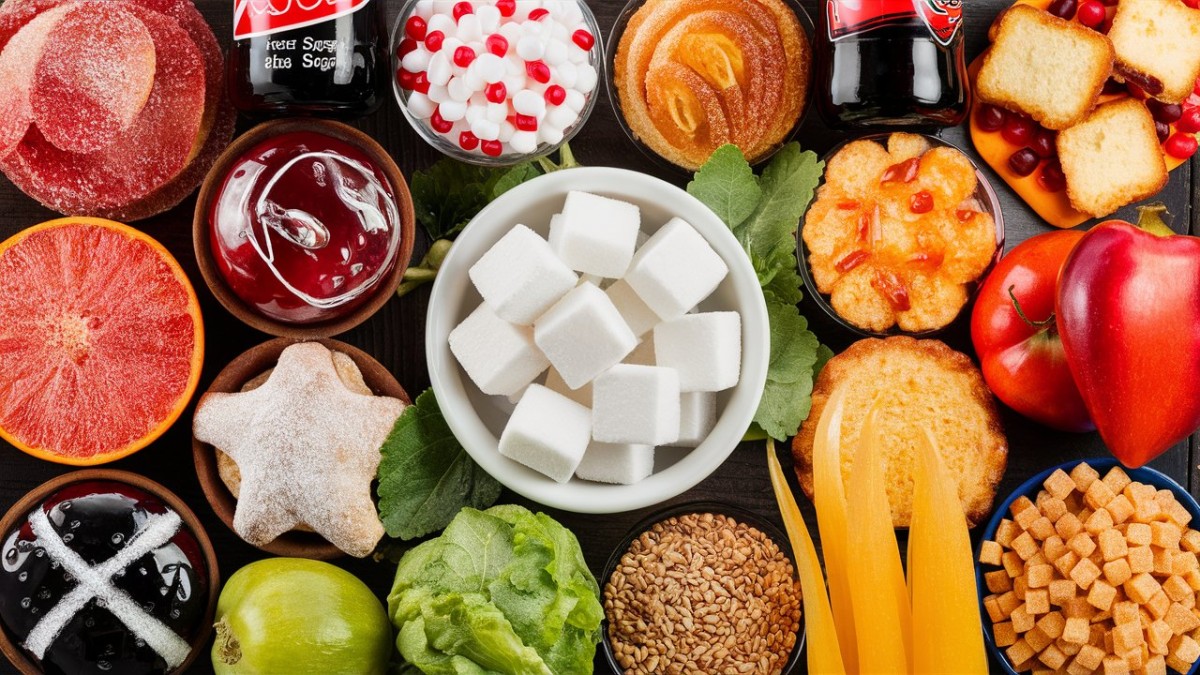You should control your sugar!
Cut out sugar out of your diet!
Don’t drink Sugary drinks!
How many times have you heard these sentences?
We know that sugar is one of the main reasons for weight gain, and many other types of health conditions.
But do you know how it poses a threat to our health?
No?
Don’t worry, because here is everything about sugar and its impact on our bodies.
Table of Contents
Basic Information Of Sugar.
The Moderate Intake of Sugar.
The Risks of Taking Too Much Sugar.
The Importance of Insulin and Glucose.
Recommended Intake Of Sugar.
Conclusion.
Basic Information Of Sugar.
One type of carbohydrate that the body transforms into glucose is sugar. Sugar comes in a variety of forms, such as raw, brown, white, honey, or corn syrup. In addition to being added to a wide range of foods, it typically exists naturally in select foods, such as fruit and dairy products.
Read More On: https://www.healu360.com/blog/everything-about-normal-sugar-level
The Moderate Intake of Sugar.
A balanced diet can include a reasonable amount of refined sugar. A reasonable consumption is defined by experts as roughly 10% of your daily energy intake. A person may be consuming a lot of “empty calories” if they frequently choose sugary foods and beverages over healthier options.
The Risks of Taking Too Much Sugar.
Too much sugar in your diet can make your diet high in kilojoules and can contribute to health problems like obesity, diabetes, and tooth decay. Refined sugar provides a quick, simple source of energy, but it doesn’t contain other nutrients such as vitamins and minerals.
Diabetes:
Small amounts of sugar, as part of a meal, are okay for people with diabetes, but people with diabetes need low-GI foods. People with diabetes should limit or avoid foods in which the main ingredient is sugar.
Now what is GI
It is Glycemic Index
A food’s GI refers to how quickly the carbohydrate is broken down and absorbed into the bloodstream
A person with diabetes has either insufficient or inefficient insulin, leading to high blood glucose levels. That is why it is important to cut back on sugar if you are diabetic.
Obesity:
Obesity can result from eating a diet high in sugar. Excess energy will be stored as fat in the body. In diet, fats supply twice as much energy as their sugar counterparts. Sugar can affect a food or drink's "energy density," or the number of kilojoules it contains, even if it has less energy than fat. Consuming excess sugar raises the kilojoule content of food and your diet as a whole. Consuming excessive amounts of any food—especially sugar-filled foods—while not getting enough exercise will make you gain weight, which will eventually lead to obesity.
Tooth Decay:
Tooth decay can result from consuming sugar or from drinking a lot of sugar-filled beverages. Mucous, bacteria and food particles combine to form dental plaque. Sugars are needed by bacteria in plaque to make acids, which erode enamel and cause tooth decay. All forms of carbohydrates aid in this process, but sugar content in sweets and soft drinks is particularly prone to cause deterioration. Candy and other quickly ingested sugars are not as bad as sticky sugars that stick to your teeth.
High Cholesterol:
Triglycerides rise in response to high sugar intake, particularly fructose. This kind of blood fat is what it is. Dense LDL particles are formed by high triglyceride levels. They have a higher propensity to pierce artery walls and deposit plaque. Moreover, sugar encourages the buildup of liver fat, which results in non-alcoholic fatty liver disease (NAFLD), a condition that affects lipid metabolism. The dangerous cholesterol levels rise as a result of this malfunction. Consuming a lot of sugar can cause chronic inflammation, which aggravates blood vessel damage and speeds up atherosclerosis, increasing the risk of heart disease.
Importance of Glucose and Insulin.
Glucose is a vital energy source for every cell in the body. The pancreas secretes insulin to regulate the amount of glucose in the blood. Insulin allows glucose to enter body cells and helps with the storage of excess glucose in the liver. That is why it is important to have a moderate sugar intake so that our insulin levels don’t alter.
Recommended Intake Of Sugar.
It is often recommended to stay away from sugary drinks, soft drinks that are high in sugar, chocolate, biscuits, and cakes. This is because these foods are extremely high in refined sugar and it only does harm than good. It is a healthy choice to limit both the fat and the sugar content in the foods you eat. It is advisable to adults that they must not have more than 30g of sugar per day. For children, it is 24g.
Conclusion.
Sugar is a carbohydrate converted to glucose, with naturally occurring sugars found in fruits and added sugars in various foods. We must be diligent about our diet and what food is good for us. If you are still facing issues with your sugar intake, it is advisable to visit a dietician.
